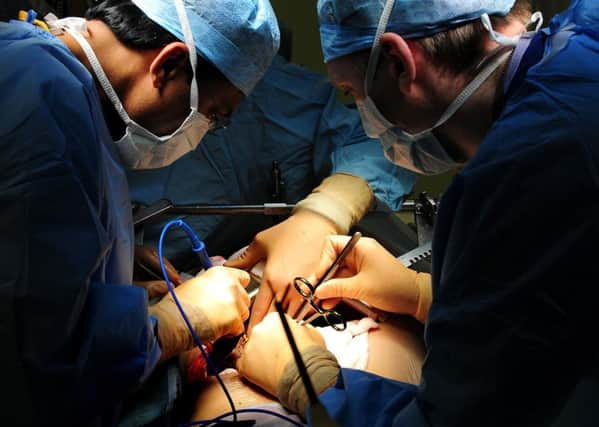Private Yorkshire hospital cancelled ops because of equipment failures...after anaesthetising patients


BMI The Huddersfield Hospital, which provides surgery and inpatient treatment for NHS and private patients, was rated as ‘requires improvement’ in four out of five areas by inspectors from the Care Quality Commission.
It has brought in a new senior management team since the inspection in February, which resulted in a critical report published by the watchdog this week.
Advertisement
Hide AdAdvertisement
Hide AdThe 29-bed hospital in Birkby, north of Huddersfield, was built in the 1970s and used as a nursing home, before being acquired by BMI Healthcare in 2008.
Inspectors visited over two days in February before carrying out an unannounced visit a week later.
The CQC rated the hospital as being ‘good’ for providing caring services, and said inspectors saw several areas of outstanding practice.
These included keeping the average length of stay for hip and knee replacements to three days, good communications between senior managers and heads of department, and a quality of life questionnaire given to physiotherapy patients.
Advertisement
Hide AdAdvertisement
Hide AdBut it was told to improve in a number of areas of poor practice, such as ensuring that “theatre equipment is safe, available and fit for purpose” and complying with safer surgery guidelines supplied by the World Health Organisation.
The CQC’s report said a high number of surgical procedures at the hospital were cancelled due to lack of equipment or broken equipment, or a breakdown in pre-assessment procedures.
The hospital must put processes in place to ensure there is a robust assessment in pre-assessment phase and a process must also be established so that action can be taken on investigation results from pre-assessment.
It said: “There were repeated failures in equipment or a lack of equipment in theatre which resulted in procedures being cancelled after patients were anaesthetised.
Advertisement
Hide AdAdvertisement
Hide Ad“Incidents related to pre-assessment were repeated over the course of a year and lessons apparently not learned.”
It was reported this summer that the hospital had seen a ‘never event’, where medical staff operated on the wrong part of a patient.
The report said that if preventable measures had been in place, the never event would not have occurred.
In the section of the report about whether services were ‘well led’, its author Professor Sir Mike Richards said: “Maintenance of the building and water safety did not appear to be a corporate priority”.
Advertisement
Hide AdAdvertisement
Hide AdHe added: “Some risks had been on the register for two to three years without full remedial action being taken despite being reported at a corporate level; for example, falling masonry, potholes in the drive, and the lack of fire doors in theatre. Water safety plans had not been acted upon in the required time.”
A spokesman for the hospital said: “The inspection was in February and since then we have a new senior team in place at the hospital. Theatres have been refurbished and there is an ongoing programme of improvement works.”